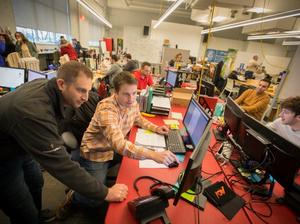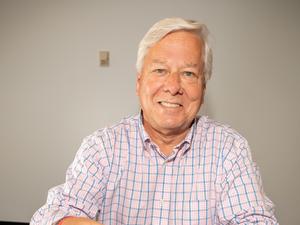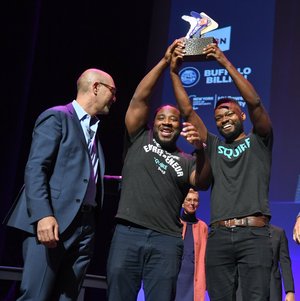Clarence native Diana Donnarumma thought she had a stomach bug in 2015, but painfully became aware that her dysautonomia, a dysfunction of the autonomic nervous system, had led to other conditions, including a paralysis of her gastrointestinal track.
“There hasn’t been a day since then that I haven’t gotten sick or thrown up,” she said.
By 2019, at age 25, she was in complete intestinal failure and terminally ill. That’s when she decided to start her own company, Resilience Medical.
Now 29 and no longer terminally ill, she has spent years in hospitals, sporting hospital gowns and medical bags that the University of Miami graduate — who has always loved style and fashion — found less than attractive. So, she decided to design and make her own, and the feedback was enough to launch her company.
In 2019, Donnarumma had two options — go into end-of-life care or go on a transplant list. She had all of her nonessential organs removed and underwent the small and large intestine transplant, a rare and risky procedure. She even had her stomach removed.
Unable to eat, drink or take medication by mouth, Donnarumma was kept alive by a nutrition IV in her chest called a Hickman line. She had to carry it around in a backpack, but the only medical bags available were “visually, the worst thing.” Like hospital gowns, they lacked individuality or personality.
“I’ve never understood the hospital gowns — they’re one-size-fits-none,” Donnarumma said. “I lost my physical health, but I didn’t lose my style or my personality. I have a lot more to offer the world than just being someone who was sick. I just wanted to feel normal all the time.”
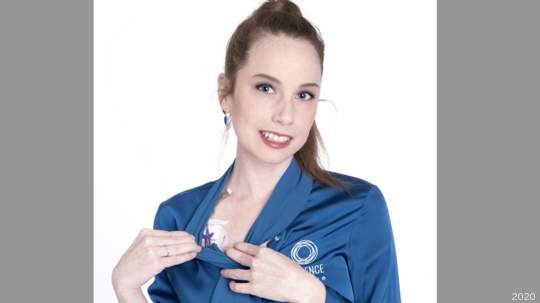
When she looked online for a more stylish bag — one that didn’t look medical — she didn’t find anything that fit the bill at a decent price.
“I found them to be extremely overpriced because they had the word ‘medical’ in them,” she said. “Staying alive already costs a lot of money when you’re really, really sick.”
So, she bought a plain canvas backpack, decorated it and modified it to fit the medical specifications necessary for her condition. When she posted the result on social media, others who rely on medical bags asked her to make one for them.
“Many companies don’t think about the emotional impact these products have on the person using them,” Donnarumma said. “It’s an emotional shackle. It feels like you’re on a ball and chain with one of these things.”
After getting sick, Donnarumma moved back in with her parents and had to quit her first post-grad job. She wasn’t sure how much longer she would live and wanted to try something new, so she started Resilience Medical.
“Also, chronic illness can lead to quite a bit of depression,” she said. “I wanted to use this company as a distraction from how poorly I was feeling, and it gave me a reason to wake up in the morning.”
She learned how to sew and made a prototype. Because the bag is a replacement for an IV pole, there had to be room for a pump and a hook. She adds a warning that the backpack is a medical device.
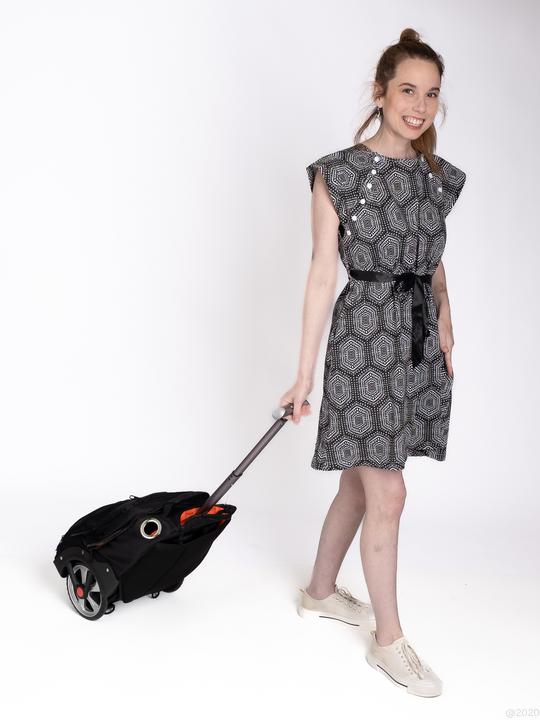
The company turned a profit within four months and really took off in 2020, as medical products were in short supply. She now has several lines of backpacks for petite adults or children; a sling-type bag; a rolling backpack; and a college backpack with room for books, a laptop, an IV bag and medical supplies.
Resiliance also makes a line of hospital gowns and adaptive clothing for post-surgery patients. They include shirts with invisible plastic snaps in the hem, and pants with invisible side zippers, so they don’t look medical.
“It’s all about preserving dignity,” Donnarumma said. “Instead of giving a loved one in the hospital flowers that might die, people can give them something that they can truly use and will allow them to feel like themselves.”
Donnarumma partners with manufacturers in China and mass produces bags and clothing based on the specifications she needed and what patients request. The products are sold on the Resilience website, Etsy and Amazon. The company also sells B2B, if health care organizations want to have products in stock.
“Down the road, I could see us in hospital gift shops,” Donnarumma said. “They are products made for patients by patients.”
Donnarumma hired one employee earlier this year, an outside sales associate and registered nurse, Deborah Federiconi. Donnarumma’s mother, Debra Donnarumma, is also involved in the company.
Donnarumma, who still struggles with her chronic illness, said she’s in the process of finding an office building and additional employees to scale up the business.
“I have done everything myself in terms of graphic design, writing and the website,” she said. “I can’t grow the business the way I want to just by myself. I could see this really growing and changing the way we look at patient apparel and accessories.”

